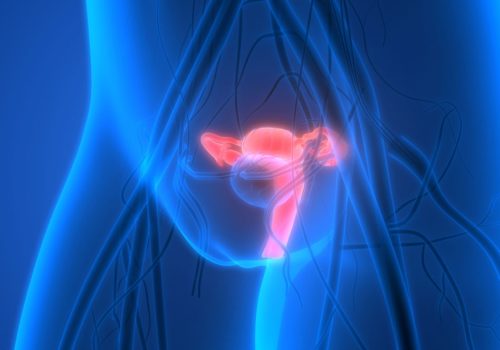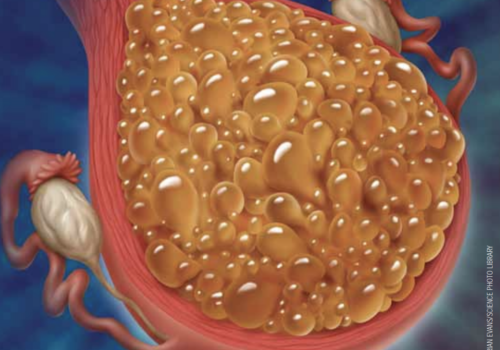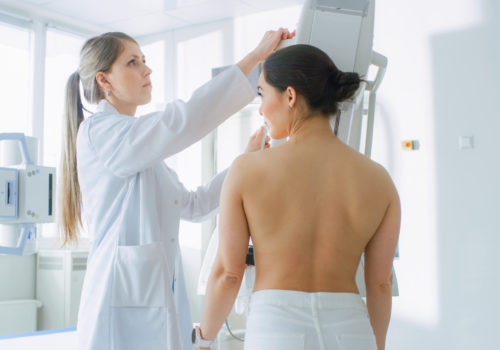Alopecia is a non-scarring chronic inflammatory autoimmune disorder that is characterised by patchy or abnormal hair loss. Six women participated in semi-structured interviews on their experiences of living with alopecia and these interviews were analysed using Interpretative Phenomenological Analysis (IPA). Insight into these psychosocial experiences can inform interventions targeted to women with alopecia.
The effect of hormonal contraception on bleeding patterns
The endometrium undergoes a series of well-recognised cycles of proliferation, differentiation and tissue breakdown on a monthly basis, in response to exposure to the circulating sex steroids oestrogen and progesterone.
Effect of obsessive-compulsive disorder (OCD) on sexual function and marital satisfaction
Current international literature suggests a high prevalence of sexual dysfunction in female patients with obsessive-compulsive disorder (OCD) and the present study was undertaken to assess the association between sexual dysfunction and marital dissatisfaction in a group of married Iranian women with OCD.
Editorial
Most people feel better in summer. We are more likely to be active and out of doors, and the sunshine lifts our mood, especially if we are on holiday. But there is a balance. While a holiday helps us relax and recharge our batteries, for some people it can also be an opportunity for unprotected sex or risky amounts of alcohol. So clear messages about benefits and risks are important, especially now that we are all working more closely with public health colleagues to encourage our patients to make healthy choices.
UK medical eligibility criteria for contraceptive use
Understanding and managing recurrent vulvovaginal candidiasis
Vulvovaginal candidiasis (VVC) is extremely common, affecting 70-75% of women at least once in their lives. Recurrent VVC, defined as four or more proven episodes in 12 months, affects 5-8% of these women and can cause a significant amount of discomfort and distress. Some women are referred to tertiary centres but, with good evidencebased treatment, many women could be managed in primary care.
Molar pregnancy: An essential diagnosis
Abnormal proliferation of placental tissue inside the uterus leads to a spectrum of rare benign and malignant lesions that include molar pregnancy and together constitute gestational trophoblastic disease (GTD). GTD can be challenging to diagnose, and primary healthcare professionals should be aware of its signs and symptoms to ensure prompt and appropriate referral.
Mastalgia: A pain in the breast, but is it cancer?
Breast pain, also known as mastalgia and mastodynia, is the commonest reason for consultation about breast problems in both UK primary care and breast units. Most women can be managed by their GPs with reassurance, advice and first-line treatments, but it is essential to identify women who need referral, especially the small minority presenting with pain as a symptom of breast cancer.
Pelvic inflammatory disease
Women and dementia: Unlocking the key to diagnosis
What if you do not understand why you are in a strange room, what the word ‘surgery’ means on the door, and you have forgotten that it means you are there for a checkup? What if your GP or practice nurse wants to examine you, but you cannot remember the words to explain that you are confused and frightened? This can be the reality for people with dementia, and women are more likely than men to experience its impact, either as patients themselves or as family carers.
Introducing outpatient hysteroscopic sterilisation
Outpatient hysteroscopic sterilisation procedures have been widely used across Europe and the USA for over 10 years, and are now becoming available across the UK. The outpatient hysteroscopic procedure offers women the choice of sterilisation with microimplants inserted into the fallopian tube via the vagina. This offers clear advantages over standard laparoscopic clip sterilisation, which involves a general anaesthetic and an intermediate surgical procedure.
New approaches to managing risk of familial breast cancer
Women with a family history of breast cancer are increasingly proactive in seeking help. As a result, breast centres and cancer genetics departments have seen an increase in referrals. This has no doubt had repercussions for workload in primary care, especially given the updated guideline on familial breast cancer from the National Institute for Health and Care Excellence (NICE). These recommendations have lowered the threshold for genetic testing, and have introduced the possibility of chemoprevention with tamoxifen or raloxifene.




























